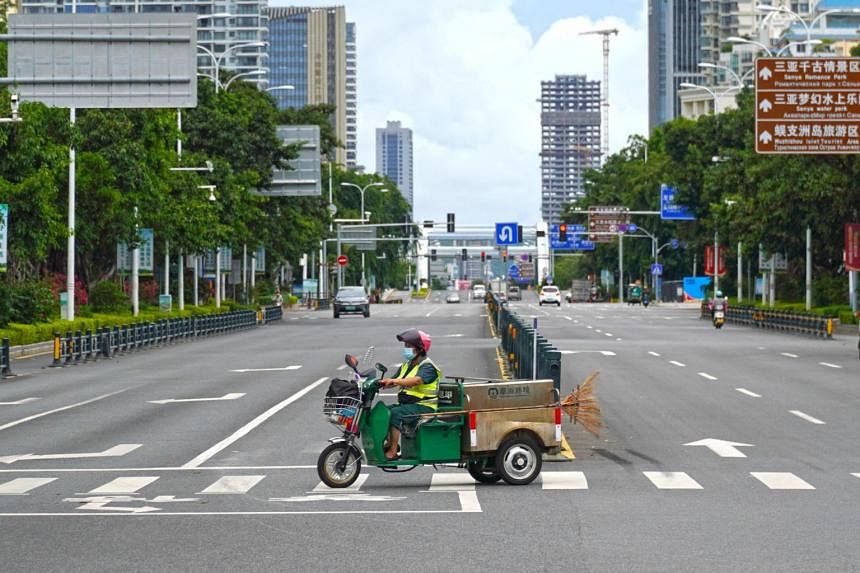HAINAN (REUTERS) - Mr Brian Hall fled Shanghai in June to avoid another lockdown of his residential compound, escaping to China's tropical tourist island of Hainan, where he could work remotely as a public health professor after undertaking 10 days of quarantine.
Mr Hall, who has worked at the New York University Shanghai for the past two years, is now stuck in Sanya, Hainan's main tourism hub, with no clarity on when he can get out.
"It has become impossible to leave the city. The hotel where I am staying is sealed, and guests are not permitted to leave our rooms, according to the city's instructions," Mr Hall told Reuters via e-mail.
Hainan province is one of several Chinese regions that have seen relatively few cases for more than two years but are now battling outbreaks, raising the risk of persistent tight restrictions as the economy weakens.
"My emotions naturally range from complete denial and disbelief, to anger, sadness and eventually hopelessness," said Mr Hall, who like millions in Shanghai endured a strict two-month lockdown earlier this year.
"It is not so much the lockdown here, but the memories of the Shanghai lockdown that have revisited me, and the sense of unease about what the autumn will bring in Shanghai and elsewhere," he said.
Hainan, which recorded just two local symptomatic Covid-19 cases last year, has reported more than 1,800 domestically transmitted infections already in August.
Although low by global standards, the authorities on the island have locked down millions of residents as part of China's "dynamic Covid-zero" policy that aims to stamp out outbreaks as soon as possible.
People are only allowed out only for certain reasons such as Covid-19 tests, grocery shopping and essential job roles.
About 178,000 tourists are stranded in Hainan, including around 57,000 in Sanya, state media has reported.
Mr Hall, who has to stay in his room and relies on the hotel for daily essentials, including food and water, said he could not predict what was likely to happen but just had to take it as it comes.
"We must remain flexible in our plans and able to accept these disruptions if we desire to live and work here," he said.











